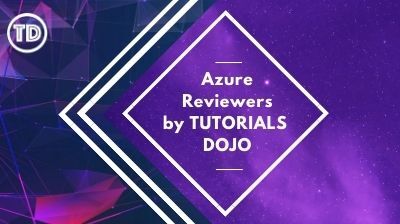Last updated on April 10, 2023
|
S3 |
EBS |
EFS |
|
|
Type of storage |
Object storage. You can store virtually any kind of data in any format. |
Persistent block level storage for EC2 instances. |
POSIX-compliant file storage for EC2 instances. |
|
Features |
Accessible to anyone or any service with the right permissions |
Deliver performance for workloads that require the lowest-latency access to data from a single EC2 instance |
Has a file system interface, file system access semantics (such as strong consistency and file locking), and concurrently-accessible storage for multiple EC2 instances |
|
Max Storage Style |
Virtually unlimited |
16 TiB for one volume |
Unlimited system size |
|
Max File Size |
Individual Amazon S3 objects can range in size to a maximum of 5 terabytes. |
Equivalent to the maximum size of your volumes |
47.9 TiB for a single file |
|
Performance (Latency) |
Low, for mixed request types, and integration with CloudFront |
Lowest, consistent; SSD-backed storages include the highest performance Provisioned OPS SSD and General Purpose SSD that balance price and performance. |
Low, consistent; use Max I/O mode for higher performance |
|
Performance (Throughput) |
Multiple GBs per second; supports multi-part upload |
Up to 2 GB per second. HDD-backed volumes include throughput intensive workloads and Cold HDD for less frequently accessed data. |
10+ GB per second. Bursting Throughput mode scales with the scales with the size of the file system. Provisioned throughput mode offers higher dedicated throughput than bustring throughput |
|
Durability |
Stored redundantly across multiple AZs; has 99.999999999% durability |
Stored redundantly in a single AZ |
Stored redundantly across multiple AZs |
|
Availability |
S3 Standard – 99.99% availability S3 Standard-IA – 99.9% availability S3 One Zone-IA – 99.5% availability. S3 Intelligent Tiering – 99.9% |
Has 99.999% availability |
99.9% SLA. Runs in multi – AZ |
|
Scalability |
Highly scalable |
Manually increase/decrease your memory size. Attach and detach additional volumes to and from your EC2 instance to scale. |
EFS file systems are elastic, and automatically grow and shrink as you add and remove files. |
|
Data Accessing |
One to millions of connections over the wed; S3 provides a REST web services interface |
Single EC2 instance in a single AZ Amazon EBS Multi-Attach a single Provisioned IOPS SSD (io1 or io2) volume to up to 16 Nitro-based instances that are in the same Availability Zone. |
One to thousands of EC2 instances or on-premises servers, from multiple AZs, regions, VPCs, and accounts concurrently |
|
Access Control |
Uses bucket policies and IAM user policies. Has Block Public Access settings to help manage public access to resources. |
IAM Policies, Roles, and Security Groups |
Only resources that can access endpoints in your VPC, called a mount target, can access your file system; POSIX-compliant user and group-level permissions. |
|
Encryption Methods |
Supports SSL endpoints using the HTTPS protocol, Client-Side and Server-Side Encryption (SSE-S3, SSE-C, SSE – KMS) |
Encrypts both data-at-rest and data-in-transit through EBS encryption that uses AWS KMS CMKs. |
Encrypt data at rest and in transit. Data at rest encryption uses AWS KMS. Data in transit uses TLS. |
|
Backup and Restoration |
Use versioning or cross-region replication |
All EBS volume types offer durable snapshot capabilities. |
EFS to EFS replication through third party tools or AWS DataSynch |
|
Pricing |
Billing prices are based on the location of your bucket. Lower costs equals lower prices. You get cheaper prices the more you use S3 storage. |
You pay Gb-month of provisioned storage, provisioned IOPS-month, GB-month of snapshot data stored in S3 |
You pay more the amount of file system storage used per month. When using the Provisioned Throughput mode you pay for the throughput you provision per month. |
|
Use Cases |
Web serving and content management, media and entertainment, backups, big data analytics, data lake |
Boot volumes, transactional and NoSQL databases, data warehousing & ETL |
Web serving and content management,enterprise applications, media and entertainment, home directories, database backups, developer tools, container storage, big data analytics |
|
Service endpoint |
Can be accessed within and outside a VPC ( via S3 bucket URL) |
Accessed within one’s VPC |
Accessed within one’s VPC |
Additional notes:
- S3 is cheaper than EBS and EFS in pure storage costs
- EBS and EFS has higher performance than S3
- EBS is meant to be used as volumes for EC2 instances
- S3 does not have a hierarchy (flat environment) for files unlike EFS
- S3 has a built-in query feature
- S3 offers strong consistency for all types of requests, except listing all buckets immediately after deleting a bucket, which is eventually consistent.


















